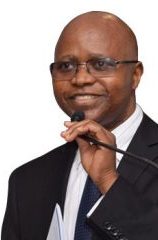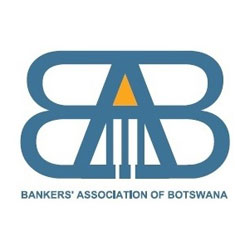In conversation with
Mr Oabile Mabusa
Chief Executive Officer | Bankers Association of Botswana

Tags: africa, Association, Banking, Botswana, Financial Services, SADC
FDI Spotlight: What is the role of the Banker’s Association of Botswana?
Oabile Mabusa: Our main role is to advocate and lobby for the interest of Botswana’s banking sector with important stakeholders in government and the private sector, and regional and international stakeholders. We conduct business with almost all the ministries within government, and in our advocacy role, we articulate positions about reforms and improvements needed to make sure that there is a fitting and mutually reinforcing relationship between government and the banking sector.
What would you say to international investors to ensure them of your work and restore the investor confidence that has been lost in the SADC region?
Oabile Mabusa: In a frigid or even a shrinking macroeconomic environment, you would expect to see outliers in key industries dropping out due to the pressure of competitive forces as the collective pie gets smaller. However, in the financial services sector, that is not the case; as our banks see the current relative fragility as a transient phenomenon. The greater message being understood by the banking sector – and a message which is supported by sound and stable macroeconomic and business variables – is the market’s conviction in the stability and recovery potential of the Botswana economy going forward.
While there might be reasonable merit for some economists to argue that the Botswana economy, and even the SADC regional economy for that matter, is still in a temporary state of fragility post the global financial crisis, there is clear convergence around the realisation that open and honest dialogue must prevail between government and the private sector, which should lead to the gradual retreat by government as it paves way for the private sector to occupy the centre stage of economic activity. At this critical moment for the nation’s sustainable socio-economic development, the dialogue between the public and private sector has to be accompanied by a clear mutual and action-oriented commitment to do something about the problem of economic revitalisation.
How important is the financial services sector and what is the role of the sector during this time of economic diversification?
Oabile Mabusa: The banking sector is one of the major contributors to the country’s GDP, which has increasingly shown some dilution of government’s role as a major player. Although the banking sector – or even more broadly the financial services sector – is not as big as say, the mining sector, if one looks at its contribution in terms of the integrated value chain, the financial services sector financially supports Botswana’s key growth driver industries. Therefore, the direct impact may not be seen as significant in relative terms, the role the financial services sector plays in facilitating growth in businesses and GDP is arguably tremendous.
Should a greater emphasis be placed on financial education and addressing Botswana’s low levels of financial literacy?
Oabile Mabusa: We must improve the national level of financial literacy by engaging those who have not understood the basic aspects of financial education such as saving, budgeting and cost of money in order to promote inclusive access to financial services. From a banking perspective, the cohort of previously unbanked and probably unbankable population presents new potential for growth in the customer base. In order to provide services for these people and to help them improve their quality of life, education and guidance must be provided at every step of the way to help them to climb up the economic ladder. This suggests that financial literacy initiatives should not only be restricted to the grassroots, but for a comprehensive strategy targeting all segments of the society stands a better chance to yield better results. Noble intentions such as this cannot be realised if the leaders in both the private and public sectors do not step up their ability to execute and implement good project management with a focus on end results. We need to make a radical transformation to show our competencies at both regional and international levels. I am positive that with ambition and the drive to implement towards making change happen in the country, Botswana can reach new heights, in which all will prosper.
What would be your confidence rating of Botswana and in the financial services sector’s ability to grow Botswana’s position as an investment gateway on the African continent?
Oabile Mabusa: Whilst acknowledging that challenges do exist, as I have previously mentioned I have no doubt at all and, in fact, I am very confident about Botswana’s growth potential and its ability to excel economically. Despite the country’s size, we do have unique competitive advantages which give the Botswana fantastic opportunities to become an investment hub on the African continent. But we need to do a lot more work for that to happen, such as showing confidence in our capacity and capability as a nation and sharpening our delivery finesse. Hence the country must brutally commit to live and act in a manner that will not only prove the nation’s potential, but also ensure that we deliver the potential to the world at large.
